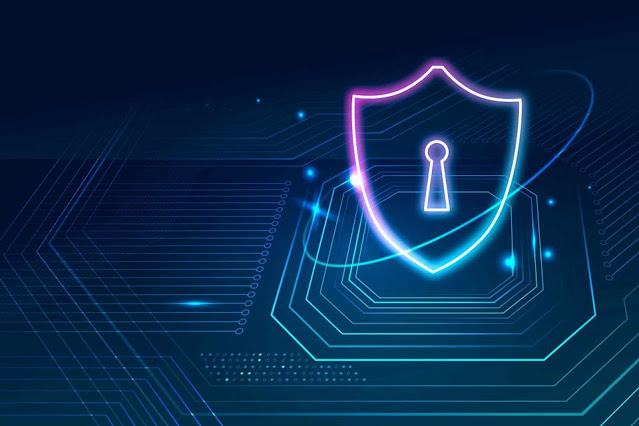Cyber Security Course vs Ethical Hacking Course: Which One Should You Choose?
With cyber threats growing more sophisticated by the day, the demand for skilled professionals in the cyber security field has skyrocketed. But when you decide to step into this domain, you’re faced with an important choice: should you enroll in a Best Cyber Security Course in Bengaluru or an ethical hacking course? Both paths promise exciting careers, but they focus on different aspects of digital defense.
In this blog post, we’ll break down the differences, benefits, and career prospects of each course to help you make the right decision based on your interests and goals.
What Is a Cyber Security Course?
A cyber security course provides comprehensive training on protecting digital systems, networks, and data from unauthorized access, attacks, and damage. It covers a wide range of topics to help you design, implement, and manage security strategies for organizations.
🔑 Key Topics Covered
-
Network security
-
Cryptography and encryption techniques
-
Security architecture and design
-
Risk assessment and management
-
Incident detection and response
-
Cloud and IoT security
-
Security governance, compliance, and policies
🎯 Who Should Choose a Cyber Security Course?
If you are interested in creating long-term defense systems, managing security operations, or working on strategic risk management, a cyber security course is ideal. It prepares you for roles that focus on prevention, detection, and response to cyber threats.
What Is an Ethical Hacking Course?
An ethical hacking course trains you to think like a hacker — but for good. The aim is to teach you how attackers find and exploit vulnerabilities so that you can help organizations fix them before they are exploited by malicious actors.
🔑 Key Topics Covered
-
Penetration testing methods
-
Vulnerability assessment
-
Exploitation techniques
-
Web and network hacking
-
Wireless and mobile device security testing
-
Social engineering tactics
-
Writing basic scripts for automation
🎯 Who Should Choose an Ethical Hacking Course?
If you enjoy hands-on work, problem-solving, and simulating attacks in a controlled environment, ethical hacking could be your calling. It suits professionals who want to work as penetration testers, red team specialists, or bug bounty hunters.
Key Differences: Cyber Security Course vs Ethical Hacking Course
Let’s break down the major differences to help you compare both paths:
| Aspect | Cyber Security Course | Ethical Hacking Course |
|---|---|---|
| Focus | Building, managing, and monitoring secure systems | Finding and exploiting weaknesses in systems ethically |
| Approach | Defensive: protect and respond | Offensive: attack to identify weaknesses |
| Content Depth | Broad — covers risk management, policies, compliance, architecture | Deep — focuses on exploitation, penetration testing |
| Tools Used | Firewalls, SIEM tools, IDS/IPS, encryption tools | Kali Linux, Metasploit, Burp Suite, Wireshark |
| Career Roles | Security analyst, SOC engineer, security architect, compliance officer | Penetration tester, red teamer, vulnerability assessor, bug bounty hunter |
Career Opportunities After Each Course
🚀 Cyber Security Course Careers
After completing a cyber security course, you can explore roles such as:
-
Cyber Security Analyst
-
Network Security Engineer
-
SOC Analyst
-
Security Architect
-
Compliance Specialist
-
Cloud Security Engineer
These positions focus on keeping an organization’s systems safe, monitoring for threats, and responding to incidents effectively.
🚀 Ethical Hacking Course Careers
An ethical hacking course opens the door to roles like:
-
Penetration Tester
-
Ethical Hacker
-
Red Team Specialist
-
Security Researcher
-
Bug Bounty Professional
-
Vulnerability Analyst
These jobs are more offensive in nature, where your goal is to identify vulnerabilities before real attackers do.
Why the Right Choice Depends on Your Career Goals
Both cyber security and ethical hacking courses are valuable. The right choice depends on:
✅ Your interest: Do you prefer building defense systems or simulating attacks?
✅ Your desired work style: Are you more drawn to strategic planning and monitoring or hands-on technical testing?
✅ Your long-term goals: Do you want to focus on governance, risk, and compliance (cyber security), or on technical, red team roles (ethical hacking)?
The good news is that both fields are complementary. Many professionals start in one and gradually gain skills in the other. That’s why some institutes, like Boston Institute of Analytics, offer Cyber Security and Ethical Hacking dual certification programs to provide the best of both worlds.
Why Choose Boston Institute of Analytics?
At Boston Institute of Analytics, we offer future-ready cyber security and ethical hacking programs that:
✅ Cover both defensive and offensive security techniques
✅ Include practical labs, projects, and case studies
✅ Offer flexible schedules (weekend, part-time, offline options)
✅ Provide placement support for top job roles
If you’re looking for an Ethical Hacking Weekend Course in Bengaluru that also equips you with cyber security fundamentals, our dual certification programs are the perfect fit.
Final Thoughts
Whether you choose a Cyber Security Course or an Ethical Hacking Course, you’re stepping into a dynamic, high-demand field with excellent career prospects.
Cyber security courses focus on building strong defenses, while ethical hacking courses teach you to think like an attacker to strengthen systems. The right path depends on your passion, skills, and the kind of work you want to do.




Comments
Post a Comment